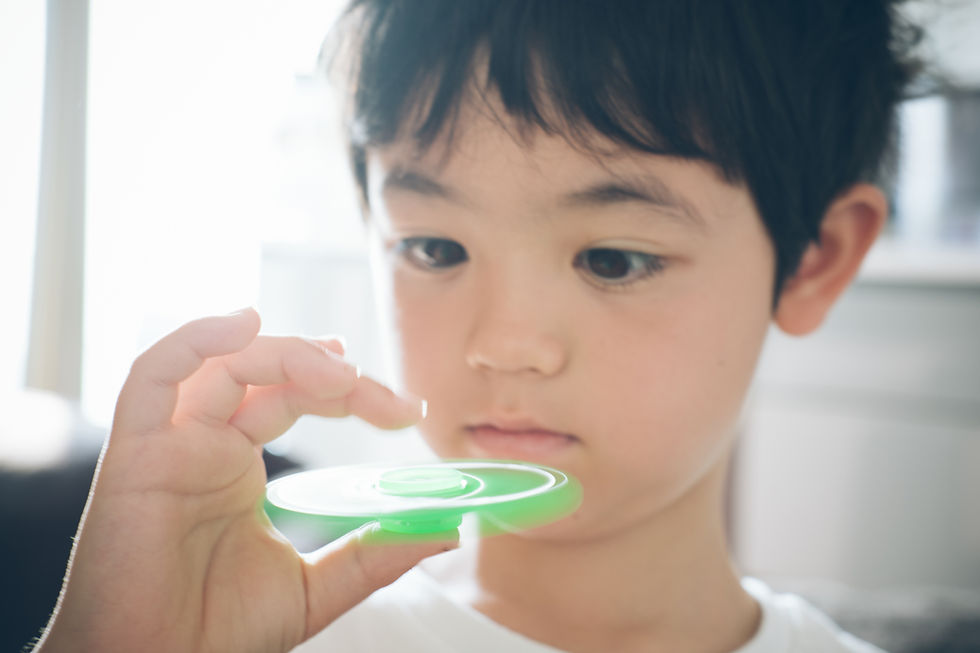ADHD Treatment Options
- tellmipsychiatry
- Jun 6, 2025
- 3 min read
Updated: Aug 4, 2025

Understanding ADHD in Modern Life
The concept of ADHD has changed over time. In the past, it was mainly seen as a childhood disorder focused on hyperactivity. Today, in our fast-paced modern society, ADHD often appears as a mental response to overwhelming demands and constant pressure.
Rather than physical hyperactivity, many adults experience mental hyperactivity — an overactive mind that jumps from thought to thought, making it hard to focus on the present moment or the task at hand. This is often caused by a hypersensitive and overstimulated nervous system.
ADHD symptoms include:
Difficulty focusing
Poor impulse control
Feeling mentally overwhelmed
If left untreated, ADHD can lead to behavioral addictions, such as:
Shopping addiction
Gaming addiction
Overuse of social media
These are not just bad habits — they are coping mechanisms. The brain, feeling discomfort or stress, looks for quick relief by focusing on things that bring pleasure or stimulation.
Treatment helps calm the nervous system, improve focus, and prevent these unhealthy survival strategies from taking over daily life.
Misdiagnosis of ADHD
ADHD is sometimes misdiagnosed. For example, individuals with High Sensitivity (HSP – Highly Sensitive Person) often experience similar symptoms. This condition is linked to over-sensitivity of the nervous system, which can cause heightened emotional reactions to stimuli.
In some cases, anxiety is inherited within families, and it might present with ADHD-like symptoms. However, if these individuals are treated with stimulant medications, their symptoms can actually worsen.
Important to note: In these cases, treating underlying anxiety can help resolve the ADHD-like symptoms, without the need for ADHD-specific treatments.
Treating ADHD When Anxiety Symptoms Don’t Improve
If anxiety treatment does not improve ADHD symptoms, it may be time to begin treating ADHD directly. As a healthcare provider, I recommend medication treatment to address the underlying neurological factors.
Let’s take a closer look at the brain. The ADHD brain has a unique structure with distinct neural responses and networks. Specifically, in people with ADHD, dopamine is not effectively reaching the prefrontal cortex. This results in a significant dopamine deficiency in this part of the brain, which contributes to ADHD symptoms.
To address this, medications that increase dopamine levels are often necessary to help improve focus, impulse control, and overall brain function.
"However, stimulants do not selectively increase dopamine only in the prefrontal cortex. They also elevate dopamine levels in central brain regions involved in mood regulation, such as the striatum and nucleus accumbens. Furthermore, stimulants stimulate the central nervous system, including pathways that connect the brain to the cardiovascular system. As a result, they can cause side effects such as insomnia, increased heart rate (tachycardia), and even heightened anxiety in some individuals' heart rate (tachycardia), and even heightened anxiety in some individuals."
Starting with Safe Approaches in ADHD Treatment; Nonstimulants
Our bodies have limitations, so it’s important to always start with the safest options. That’s why it's recommended to begin with non-stimulant medications.
The major difference between stimulant and non-stimulant medications lies in addictiveness and side effects. Stimulants are powerful drugs, and they often come with side effects like rebound anxiety, high blood pressure, and insomnia.
Research by experts has shown that after about 6 months, the effectiveness of stimulants and non-stimulants tends to be similar. The main difference is that stimulants often provide a quick rush or immediate effect, whereas non-stimulants tend to work more gradually.
Because of this gradual effect, many people believe stimulants work better and non-stimulants don’t have much effect. However, as someone who values holistic and safe medication use, I strongly recommend starting with non-stimulants first.
ADHD Treatment with Stimulants
ADHD is a condition where excessive mental hyperactivity can drain a lot of energy. Without proper treatment, this can lead to overload on the body and cause you to miss out on many important things in life. That’s why I truly hope you navigate this situation wisely and find success in your own way.
Stimulants can definitely help manage ADHD symptoms, but they also upregulate our dopamine system. So, it’s really important to support your brain in healthy ways—by making lifestyle changes and avoiding things like excessive caffeine, smoking, drugs, and alcohol. Instead, seek out natural dopamine boosters like traveling, listening to music, exercising, volunteering, bonding with family, and spending time with good people.
That’s why the best approach with stimulants is always to use the lowest effective dose and as few types as possible for the long term.



Comments